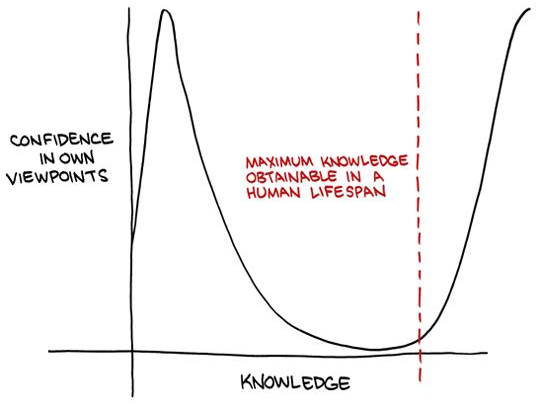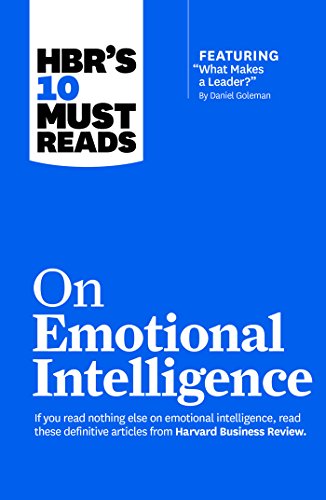Marketing is a strong career path. A glance at the BLS data shows how lucrative success in this industry can be.
Getting a job in marketing isn’t difficult. Demand for entry-level associates is high and growing, whether it’s at an agency, corporate in-house, or at a start-up. Even if your starting salary is not what you expected, there’s a lot of potential for growth and the cognitive flexibility is attractive.
Yet, for many young marketers, there seems to be a point where you either “make it” or you don’t. This obstacle can be frustrating because it leaves you wondering what you’re doing wrong, whether this industry is right for you, or if you’re being held back.
What follows is an introspective guide on how to overcome this hurdle and advance in your career.
My Story: A Primer
When I graduated from college, I expected to work in finance with my quantitative economics degree. Of course, I ended up getting my first job out of school right here at Now Media Group and, looking back, I couldn’t see it happening any other way. I’m drawn to the high degree of intellectual freedom, the opportunity for contribution, and the uncertainty of constant technological and tactical change.
My first role was that of a content writer. I wrote between 7,000–10,000 words per day for our clients. Three months later, Now Media Group was looking for an SEO specialist. I jumped at the opportunity. Walking into the partners’ office, I announced my candidacy and gave them a multi-page list of all possible improvements we could make to our SEO strategies. Two or three weeks later, I got the job.
Before I knew it, I was managing a team of five writers. I also took on pay-per-click and social media management. I did this for about two years.
Next came one of the most exciting experiences in my career so far. I was hired by Robbins Research International, the company responsible for marketing Tony Robbins events, coaching, and products, as a digital analyst. I learned an extraordinary amount, changing my life forever.
When I came back to Now Media Group, I did so as a marketing director. In my new role, I manage the entire marketing department and lead strategic operations for clients, as well as our internal lead generation needs.
I’d like to extract some lessons I’ve learned from my experiences, and hopefully you can find value in them toward furthering your own career.
The Qualities of a Top Marketer
I do a lot of hiring in my current role. What are some of the traits that I look for? What are some of the characteristics I seek based on my own path?
Self-Directed Learning is Vital
Not only is marketing always changing, but there’s always more to learn within your specialty. There’s a graphic that I like to reference a lot because it illustrates exactly what I mean.

You should never feel that you’ve learned everything or that there’s nothing more to know. In fact, the deeper you dive, the more opportunities you should see.
However, the likelihood that your hand will be held through this process is incredibly low. Even with the support you’re getting, why handicap yourself by not accelerating your pace? Take control of your own future, command your own path, and constantly assimilate new information. Be curious. Ask questions and find answers.
People who don’t learn, don’t grow. Why is that? Because they’re not finding new ways of adding value.
How High is Your Internal Standard?
There’s a lot of marketing out there. A lot.
Does your work stand out?
The quality of your work is, in part, a function of the standard your team holds you to — but again, why rely entirely on the team? Furthermore, are you influencing your team to do better?
The truth is that the quality of your work is truly a reflection of your own internal standard. If it stands out in the results, it stands out to your employers and teammates. People are attracted to those who excel. Having a high internal standard will help you influence others, driving them to improve and join you at your level.
If your standard isn’t high, your work will reflect that and, just as importantly, you won’t stand out.
Don’t Problem State, Problem Solve
Someone very wise once told me there’s a difference between complaining and problem-solving.
When you complain, you’re focusing on the problem.
When you problem solve, you’re focusing on finding a solution.
Everyone has their problems and that’s where their minds are focused. Most people don’t like getting involved in other peoples’ issues. That’s their mistake and your gain.
Focus on solving problems. It’s the #1 way of adding value.
Start Anticipating, Stop Reacting
Do you wait to do something until you’re told to do it? Or, do you anticipate what your teammates need and work on it proactively?
I had a project at Tony Robbins where I had to figure out how to pass Google Analytics tracking parameters through to Salesforce so that we could better analyze how offline sales intersect with online advertisement. To do that, I had to use Marketo forms with hidden fields that took the tracking parameters from the URL.
The problem with our implementation of the Marketo forms is that because they loaded in a lightbox, which is like a pop-up, the thank you page would reload within the lightbox and not the overall window.
When I explained to my boss, Keenan, how I had completed the project, he said, “It’ll do for now, but we’ll have to find a different solution.”
“Is it because the thank you page reloads within the lightbox?” I asked.
“Yep,” he answers.
“I fixed that. I found JavaScript that reloads the thank you page in the browser window.”
Anticipate problems and solve them proactively. These little opportunities speak volumes about you. It takes stress and worries off the shoulders of others because it allows them to feel comfortable enough to trust that you’ll get the job done without them having to spend their limited time double checking your work.
Don’t Be Afraid to Make Mistakes, But Choose Them Strategically
Learning, anticipating, and growing all require pushing boundaries. You don’t know where those boundaries are unless you explore. You’re venturing into the unknown and that means you’re bound to make mistakes.
That’s okay – a mistake is not the same thing as failure. Failure is when you don’t learn from the mistakes you make.
In fact, mistakes are the single best way to learn. It forces the internalization of the lesson, meaning you’re more likely to remember and never repeat it.
Some mistakes can’t be forgiven, but most can.
Start thinking in terms of probability. What’s the likelihood of getting a decision wrong? 10, 20, 80%? If you think in terms of probability, you’ll start using your resources better. You’ll save questions and ask for help when it matters, and help remove that stress from others when you’re likely to get the decision right anyway.
Finally, own your decisions. Instead of relying on others to make them for you, own your decisions and learn from your mistakes. It’s the only way you’re going to learn to make better decisions.
Employers like people they can trust and those are people who make decisions.
Read

Reading deserves special attention because it’s an activity most people foolishly forego.
Reading helps keep your mind sharp, and sharp minds perform better.
It helps you learn from others’ mistakes. It makes you wiser without having to experience the mistake for yourself.
Most relevant of all, reading helps develop empathy, which is a huge part of marketing. If you can’t appeal to the audiences’ emotions and way of thinking, your efforts will suffer from subpar performance. By exposing you to new ideas and different ways of seeing the world, books can help you develop that emotional intelligence that will make you a better marketer, team member, and leader.
Finally, don’t forget to make your book list multi-disciplinary.
Don’t Place Blame
Not everything in life works out the way you wanted.
For each person’s success story, they’ve experienced a hundred failures.
Failure is a part of life. What defines success is not the absence of failure, but rather your response to it.
Don’t ever allow yourself to be the victim. It’s not about what people do to you, or how something fell through, or about how life is unfair. You don’t have control over any of that. What you do have control over is your reaction to it.
Be aggressive and focus on what you can change. Don’t wait for the opportunity, seek it out.
Easier said than done? Maybe, but some of us are already doing it. I’m confident you can as well, if you’re not already.

